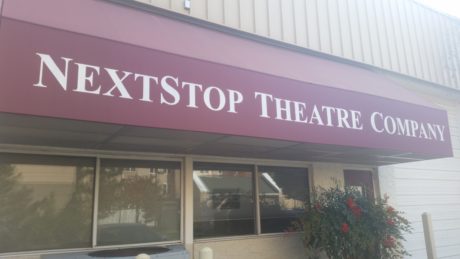Seeking out budget efficiencies with the often limited resources of a non-profit is a constant. Many of us known this from our own experiences as non-profit board members or on staff.
In these current days of political uncertainly and the aftermath of recession and sequestration, funding may be less generous and perhaps even less secure from previously reliable government sources. And who knows what the future of generous government funding to the arts will be in the future. I know from my own experience at senior levels of government service, funding priorities can abruptly change when a new Administration arrives.
We in this non-profit world and business also know that philanthropic organizations have constantly shifting funding priorities and competition for their scarce resources. It can’t be easy for progressive philanthropic organization to have to decide whether to fund a Head Start slot for a deserving low-income child or a clinical trial or the arts.
Certainly, tickets have never covered the costs of a creative venture. And Baby Boomers who gave rise to what is now such a vibrant DC theatre scene may no longer be a ready source of donations.
So, that said, recently Herndon’s NextStop Theatre Company made me aware of a new business-process that was intriguing. It was not only aimed at saving money, but seemed as one that a whole new generation of theater-goers would find how things should be done in this digital age.
NextStop has just instituted a “paper-free” show programs described as “Cutting Edge, Cutting Out Waste.”
Now, please keep reading, this is not some bureaucratic notion at all, not one bit. Beyond saving valuable resources, it is the way to connect better with the technology savvy, theater-goers of the future, the Millennials, while also providing great communications networks with Baby Boomers.
The NextStop paper-free program will provide patrons with digital theatre materials; replacing the usual print programs many of us grew up. (and perhaps have saved as mementos).
NextStop’s paper-free program system works on any digital device that can use the Internet, including smartphones and tablets. With a printed on-paper program, there are limits such as costs to print; the paper size, color vs. black-and-white, even the choice of un-coated vs coated paper can be a major dollar choice. And, printed programs must be finalized weeks in advance of a production’s opening night. Now with digital there can be last-minute changes, if ever needed.
Digital programs allow audiences more content without print space/print cost limitations. Digital programs can be posted and updated constantly. Also, this technology can also speed up communicating between patrons and potential advertisers; as advertising migrates from print to digital with plenty of scanning apps.

So with that, I spoke with Matthew “Moose” Thompson, NextStop’s Director of Finance and Administration. With a background and knowledge that includes technology and the digital world, he was a major force behind NextStop’s vision and implementation of its paper-free program system.
David: Why did NextStop decide to go “paper-free” with its show programs?
Matthew: So much of the experience visiting NextStop Theatre feels different than seeing a show elsewhere. That’s because, as a fledgling professional theatre with such limited resources, we have to ensure the activities we undertake are those we believe have a future. Delivering information to theatre patrons in paper booklets is going the way of the rotary phone: beloved nostalgia, but better used in theatre as a prop.
What are the challenges with paper-free, digital on-line programs?
In our research, we found patrons wanted something to refer to during the show, which wouldn’t work for brightly lit mobile devices. Last year, we started making what we call “cheat sheets” available. It has musical numbers and quick reference information condensed onto one slip of paper.
What are the advantages of “paper-free” to audience members?
Right now, audience members will find clickable links to actor and sponsor websites, longer features articles, and information that has been updated even after the opening of the show. By design, at first, the experience of using the digital programs won’t feel a lot different from the old paper versions. However, the layout will gradually shift over this season to a mobile-optimized format with even more flexibility for relevant content. So many talented actors, directors, and designers have their own beautiful website with extended credits, photos, and videos—why would anyone choose to read a 100 word bio instead of enjoying that great content linked directly from their program?
Are there advantages to advertisers and others with digital programs?
For a few years now, our sponsors have had the recognition of their support be seen more online than offline already. Through e-mail and web communications, their proud support of locally driven, live performing arts in the Dulles tech corridor is shown to more people than ever. Now, organizations can list their entire changing, clickable lineup of events in our digital programs.
I understand you offered classes to your subscribers for the “paper-free” show programs?
Many of our subscribers have been coming to this theatre for almost three decades—we like them to be aware of changes and proactively answer questions. I was confident in our research, tests, and decision to stop using paper programs, and I was prepared for any reaction from our most loyal guests. Although no one took us up on the offer, we were available to show patrons how the new system would work and answer questions. I think being available and providing patient customer services is one of the reasons we’ve been able to develop such a strong feeling of trust and community with our subscriber base.

What is the link to your paper-free programs?
It’s www.DigitalProgram.org. This link is delivered to patrons in a reminder e-mail 48 hours before their visit, and it’s displayed on the show’s information page on our website. For the current production of Catch Me If You Can the link is here.
Anything additional you would like to provide about the paper-free programs?
This is like the iPhone 7 elimination of the headphone jack to me. [I expect] digital programs to be a majority focus in the near future.
People have asked me if I’m concerned about our significant population of patrons not wanting to use a digital program. Well, I get calls all the time at my office where I walk patrons through ordering tickets online from their computer or mobile device.
Additionally, a small percentage of our patrons don’t own a mobile device, so we have some tablets on hand patrons can borrow if they didn’t bring their own. Far from being a nuisance or a negative part of pushing forward with new technology in live theatre, that’s at the heart of building relationships with our patrons. I’ve had so many little celebrations on the phone from patrons learning how to engage with us online. We just had a longtime patron who turned 100, and I can’t wait to put one of our tablets in her hands when she comes for her next show.
Catch Me if You Can plays through October 9, 2016, at NextStop’s Industrial Strength Theater — 269 Sunset Park Drive, in Herndon, VA. For tickets, call OvationTix at (866) 811-4111, or purchase them online.






